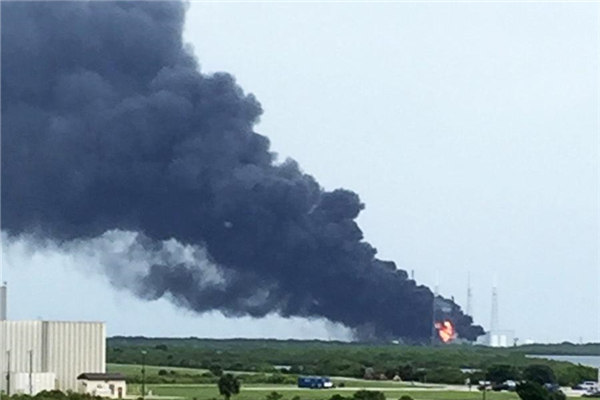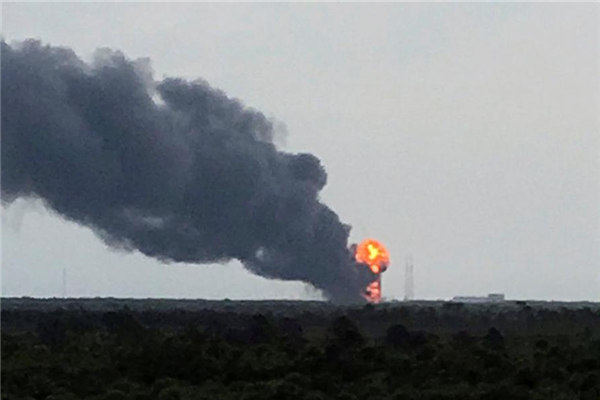 |
|
An explosion on the launch site of a SpaceX Falcon 9 rocket is shown in Cape Canaveral, Florida September 1, 2016. [Photo/Agencies] |
SpaceX said there were no injuries and that an "anomaly" during the static fire test resulted in the loss of the rocket and a communications satellite owned by Israel-based Space Communication which was going to be used by Facebook to expand internet access in Africa.
Video showed a fiery blast ripping through the upper part of the rocket before the vehicle collapsed in flames on the launch pad at Cape Canaveral Air Force Station just after 9 a.m. ET (1300 GMT). A plume of black smoke poured into the air.
Musk, a billionaire entrepreneur who helped found Tesla Motors, said on Twitter that the rocket's loss occurred while it was being filled with propellant and the problem originated around the upper stage oxygen tank.
"Cause still unknown. More soon," Musk tweeted.
 |
|
An explosion on the launch site of a SpaceX Falcon 9 rocket is shown in Cape Canaveral, Florida September 1, 2016. [Photo/Agencies] |
People in buildings far from the facility felt shock waves, but local authorities said residents were not at risk.
Robin Seemangal, a space reporter with the Observer newspaper, quoted a source at the facility who said it felt like the office they were in had been hit by lightning.
"We actually thought the building was collapsing, it shook us so bad," Seemangal wrote in a tweet, quoting his source.
SpaceX had been due to launch its 29th Falcon 9 rocket, which carries a list price of $62 million, before dawn on Saturday, carrying the Spacecom-owned AMOS-6.
Facebook would have been among the customers for bandwidth on that satellite. Last year, Facebook said it was partnering with Eutelsat Communications to boost data connectivity to large parts of Sub-Saharan Africa.
Thursday's explosion could derail the sale of Spacecom for $285 million to Beijing Xinwei Technology Group. The companies unveiled the agreement last week, but said it was contingent on the successful launch of the satellite and completion of its in-orbit tests.
In a statement to the Tel Aviv Stock Exchange, Spacecom said the satellite's loss will have "a significant impact" on the company, and it would continue to provide updates. Its shares closed down 8.9 percent at 38.95 shekels.
The Federal Aviation Administration, which oversees commercial rocket launches in the United States, will work with SpaceX to understand the cause of the accident, an agency spokesman said.